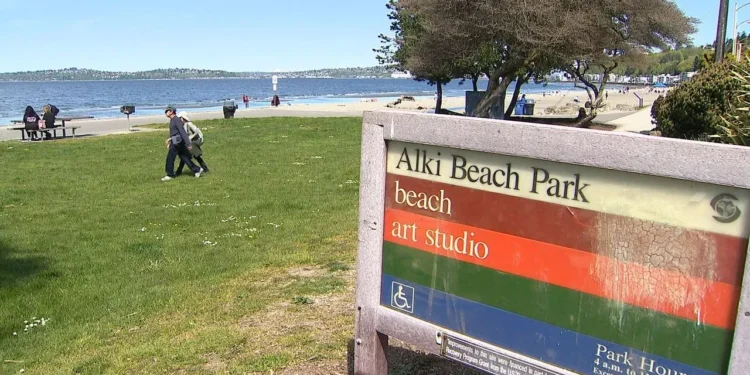Seattle officials have begun enforcing earlier curfews at several of the city’s most popular parks and beaches starting Memorial Day weekend 2025, in a significant move to address a troubling rise in violent incidents, drug use, and late-night disturbances. The decision, part of Seattle’s broader summer safety initiative, mandates that locations like Alki Beach Park and Golden Gardens Park now close at 10:30 p.m., one hour earlier than in previous years. This policy marks the fourth consecutive summer of enhanced enforcement in response to growing safety concerns voiced by residents and law enforcement alike.
The shift comes in the wake of several alarming incidents that have cast a shadow over Seattle’s public recreational spaces. During the 2024 Memorial Day weekend alone, the city witnessed multiple shootings across various parks. At Lincoln Park, a teenager was shot, and a stray bullet narrowly missed a family with small children nearby. The shocking proximity of the violence to innocent bystanders highlighted the escalating risk of nighttime gatherings. Gunfire was also reported at Golden Gardens Park, although no injuries were confirmed in that incident. Meanwhile, Magnuson Park became the scene of another shooting that left a teen in critical condition. These acts of violence have prompted both city leaders and community members to call for immediate action to reclaim public spaces for safe and peaceful use.
To support the curfew enforcement, Seattle has implemented a suite of safety enhancements across its park system. These include increased police patrols and a higher presence of park rangers at high-priority locations during peak hours. City workers have installed new gates and physical barriers to restrict after-hours access and discourage dangerous behaviors such as street racing and reckless driving, which have been ongoing issues at beachside and urban parks. Additionally, Seattle Parks and Recreation has begun locking restrooms overnight and improving maintenance to maintain cleanliness and deter criminal activity. Legal efforts have also ramped up, with enhanced support for the enforcement of trespassing violations, noise complaints, and the removal of unpermitted vendors.
These changes reflect a growing commitment by Seattle’s municipal government to ensure that public parks remain safe and welcoming for families, children, and the broader community. Officials emphasize that the earlier curfews are not only a deterrent to crime but also a proactive measure designed to preserve the city’s green spaces as inclusive environments for recreation and relaxation. The city has communicated that it will continue monitoring safety trends and community feedback throughout the summer to determine the effectiveness of the policy and whether further measures will be needed.
Despite the city’s intention to bolster public safety, reactions among Seattle residents have been mixed. Some support the earlier curfews as a necessary response to unchecked violence and deteriorating conditions in public areas. Others express skepticism about the policy’s long-term impact, arguing that deeper-rooted social issues contributing to the violence—such as poverty, lack of youth engagement programs, and substance abuse—require more comprehensive solutions than enforcement alone.
As Seattle enters the busy summer season, all eyes are on the impact of these new curfews and whether they will succeed in reversing the trend of violence that has plagued its parks in recent years. With enhanced oversight, visible security presence, and continued public input, the city hopes to foster an environment where parks and beaches can be safely enjoyed by residents and visitors alike.
This strategic safety initiative, introduced during a high-traffic holiday weekend, is expected to set the tone for how Seattle manages its public spaces through the rest of the summer and potentially beyond. The success or failure of this policy will likely influence future approaches to urban park management and community policing not only in Seattle but also in other cities facing similar challenges.







